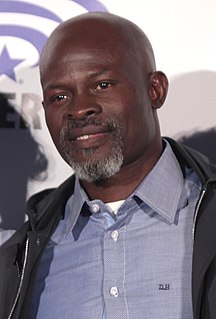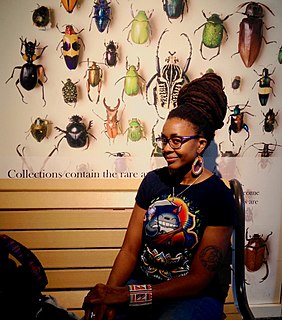A Quote by Chris Abani
African narratives in the West, they proliferate. I really don't care anymore. I'm more interested in the stories we tell about ourselves - how, as a writer, I find that African writers have always been the curators of our humanity on this continent.
Related Quotes
China surely must be interested in a more stable, non-antagonistic relationship with the African continent precisely because of its own needs. And therefore would have to say in our own interests, as China, it is necessary that we participate in the process of the development of the African continent.
Oh, I love labels, as long as they are numerous. I'm an American writer. I'm a Nigerian writer. I'm a Nigerian American writer. I'm an African writer. I'm a Yoruba writer. I'm an African American writer. I'm a writer who's been strongly influenced by European precedents. I'm a writer who feels very close to literary practice in India - which I go to quite often - and to writers over there.
What moved us was not so much what would it do for South Africa, but there has been a great keenness on the Continent that the location of the Pan African Parliament must add to its credibility. And, so we said, fine, it's a contribution to this process of the democratisation of the African Continent.
What I can say is that it was clear to many of us that an indigenous African literary renaissance was overdue. A major objective was to challenge stereotypes, myths, and the image of ourselves and our continent, and to recast them through stories- prose, poetry, essays, and books for our children. That was my overall goal.
In a one-hour documentary, you can tell maybe ten stories. That's how the documentary is structured. I wrote to forty of the greatest historians of both African and African-American history, and hired them as consultants. I had them submit what they thought were the indispensable stories, the ones they felt this series absolutely had to include.
Having travelled to some 20 African countries, I find myself, like so many other visitors to Africa before me, intoxicated with the continent. And I am not referring to the animals, as much as I have been enthralled by them during safaris in Kenya, Tanzania and Zimbabwe. Rather, I am referring to the African peoples.


































